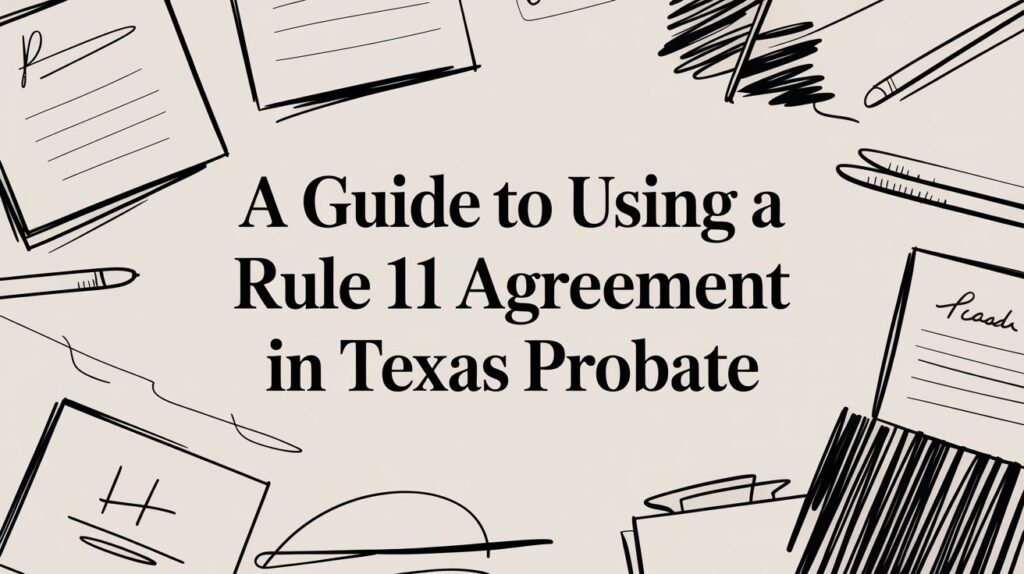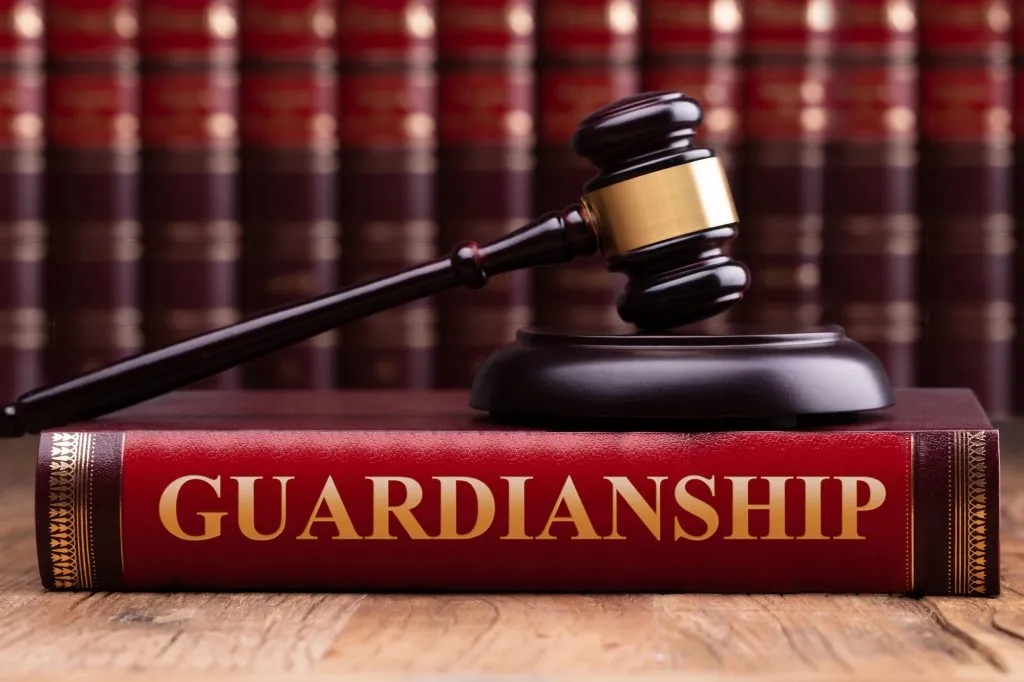If you’re handling an estate in Texas, you may be wondering, what are proof of facts in Texas probate? The probate process in Texas requires various legal documents and factual evidence to validate the deceased’s estate, debts, and rightful heirs. These proof of facts play a crucial role in ensuring the court can effectively distribute assets, settle disputes, and confirm that the estate follows Texas probate laws.
Understanding proof of facts in Texas probate is essential for executors, beneficiaries, and anyone involved in estate administration. Whether you’re dealing with a simple estate or a complex probate case, knowing which documents to gather can streamline the process and prevent legal issues. In this guide, we’ll break down proof of facts in Texas probate, explain the key documents you’ll need, and provide practical tips to navigate the probate system efficiently.
Why Are Proof of Facts Important in Texas Probate?
Probate courts require proof of facts to ensure that the estate is administered lawfully and fairly, protecting both heirs and creditors involved in the process. These documents provide legal evidence that helps establish:
- The validity of a will, which determines how assets are distributed.
- The identity of heirs and beneficiaries, ensuring rightful inheritance.
- The value of estate assets, so the court can determine what needs to be distributed.
- Any outstanding debts or claims against the estate, which must be settled before assets are distributed.
- The executor’s right to distribute assets, granting them legal authority to act on behalf of the estate.
Without proper proof of facts, probate can be delayed, contested, or even denied by the court, leading to costly legal disputes. In Texas, having the right documentation can speed up the process and prevent unnecessary legal conflicts between heirs, executors, and creditors.

Key Proof of Facts Required in Texas Probate
1. The Death Certificate
The first and most essential proof of fact in Texas probate is the death certificate, which serves as official confirmation of the deceased’s passing. This document is necessary for initiating probate and ensuring that financial and legal matters are properly handled.

- Texas law requires a certified copy of the death certificate when filing for probate to verify the individual’s death.
- The executor or administrator will submit this to the court as part of the initial probate petition to begin legal proceedings.
- It also serves as proof when closing bank accounts, transferring property titles, and notifying creditors, allowing for the orderly distribution of the estate.
- Institutions such as insurance companies, Social Security, and mortgage lenders require a certified copy before releasing assets or processing claims.
Having multiple copies of the death certificate is recommended, as different institutions may require original certified versions, which can take time to process if additional copies are needed later.
2. The Last Will and Testament
If the deceased had a valid will, it must be submitted to the probate court as part of the proof of facts in Texas probate to guide asset distribution. The will serves as a legal roadmap detailing the deceased’s wishes regarding their estate.
- The will identifies the executor responsible for managing and distributing the estate’s assets.
- It outlines how assets should be distributed among heirs and beneficiaries, ensuring the deceased’s final wishes are honored.
- The document may include specific instructions for real estate, financial accounts, business interests, or charitable donations.
For the will to be accepted in Texas probate, it must meet certain legal requirements:
- Be signed by the deceased and at least two witnesses to be legally valid.
- Be filed within four years of the death for probate to be legally recognized in Texas.
- Pass the court’s validation process, ensuring that no fraud or undue influence took place when drafting the will.
If no valid will exists, the estate follows intestate succession laws, meaning assets are distributed according to Texas law, rather than the deceased’s personal wishes.

3. Executor’s Proof of Appointment
The executor named in the will must provide proof of their legal authority to manage the estate by obtaining official court-issued documentation. This legal proof allows them to act on behalf of the estate and carry out probate duties.
- The court issues Letters Testamentary when a valid will exists, legally authorizing the executor to carry out their duties.
- If no will exists, the court appoints an administrator, who must obtain Letters of Administration instead.
- These documents allow the executor to pay debts, distribute assets, and handle legal matters such as property sales, tax filings, and creditor claims.
Without these legal documents, financial institutions and government agencies will not recognize the executor’s authority, potentially delaying probate proceedings and asset distribution.
4. Inventory and Appraisal of Estate Assets
One of the most crucial proof of facts in Texas probate is the inventory and appraisal of estate assets, ensuring that all property is accounted for and valued correctly. This documentation is required for fair distribution and tax assessment.
- The executor must list all assets, including real estate, bank accounts, investments, business holdings, and personal belongings.
- High-value assets, such as real estate, jewelry, antiques, and artwork, require professional appraisals to determine their market value.
- Ownership documentation, including property deeds, vehicle titles, and financial statements, must be provided to establish rightful ownership.
- This inventory ensures that all estate assets are accounted for before distribution, preventing disputes among heirs.
Failure to submit an accurate inventory could result in legal challenges from beneficiaries, creditors, or tax authorities, complicating the probate process.
5. Proof of Debts and Liabilities
The executor must also submit proof of debts owed by the deceased before distributing assets to heirs. These financial obligations must be addressed to prevent legal issues with creditors.
- Outstanding mortgages, car loans, or personal loans must be reviewed and settled.
- Medical bills, including hospital stays and funeral expenses, may need to be paid from the estate.
- Unpaid taxes, including income taxes, property taxes, or estate taxes, must be resolved before assets are distributed.
- Credit card balances or other financial claims from creditors must be reviewed and paid if valid.
Texas probate law requires executors to notify creditors and provide them with an opportunity to file claims against the estate. The court will review all claims before allowing final asset distribution.
6. Affidavit of Heirship (If No Will Exists)
If the deceased died without a will, heirs must submit an Affidavit of Heirship to legally establish their right to inherit assets. This document serves as a sworn statement verifying family relationships and rightful inheritance.
- The affidavit must identify all legal heirs and their relationship to the deceased, helping determine how assets should be distributed.
- Texas intestate succession laws will guide the process if no clear legal heirs are identified.
- Two disinterested witnesses, who knew the deceased and can confirm the heirship claims, must sign the affidavit.
This document is often used for small estates or to transfer real estate property without requiring a full probate proceeding, making it an important tool for simplifying estate administration.
7. Court Orders and Final Decrees
Once the probate process nears completion, the court issues final orders approving:
- The distribution of assets according to the will or intestate laws.
- The payment of debts and taxes.
- The official closing of the estate.
These court orders act as the final proof of facts in Texas probate, confirming that the estate was settled correctly.
How to Gather and Submit Proof of Facts in Texas Probate
1. Organize Documents Early
Start collecting essential probate documents as soon as possible. Having everything in order can prevent unnecessary delays.
2. Work With an Experienced Probate Attorney
Texas probate laws can be complex, and missing key documents can cause setbacks. A skilled probate lawyer can:
- Ensure you submit the correct proof of facts.
- Help resolve heirship disputes or contested wills.
- Guide you through formal or independent probate proceedings.

3. File Documents With the Probate Court
Submit all required paperwork to the appropriate Texas county probate court where the deceased lived. Courts typically require:
- Petition for Probate
- Death Certificate
- Will (if applicable)
- Executor’s Proof of Appointment
4. Notify Creditors and Heirs
Properly notifying creditors and heirs ensures a smooth probate process. Executors must:
- Publish a notice in a local newspaper.
- Send legal notices to known creditors.
- Contact beneficiaries to inform them of the estate proceedings.
Common Challenges in Providing Proof of Facts in Texas Probate
1. Lost or Missing Documents
If a will is missing or financial records are incomplete, the probate process can become complicated and time-consuming.
2. Disputes Over Heirship
Family members may contest the validity of documents, leading to delays or legal battles.
3. Unpaid Debts Affecting Estate Distribution
If debts exceed the estate’s value, creditors may file claims, reducing the amount available for beneficiaries.
Final Thoughts on Proof of Facts in Texas Probate
Understanding what proof of facts in Texas probate entails can make the process more efficient and less stressful. By gathering the right documents, working with an experienced probate lawyer, and following Texas probate laws, you can ensure a smooth estate administration.
If you are handling probate in Texas, take the time to prepare your documentation and consult with legal professionals to avoid unnecessary delays and disputes.








